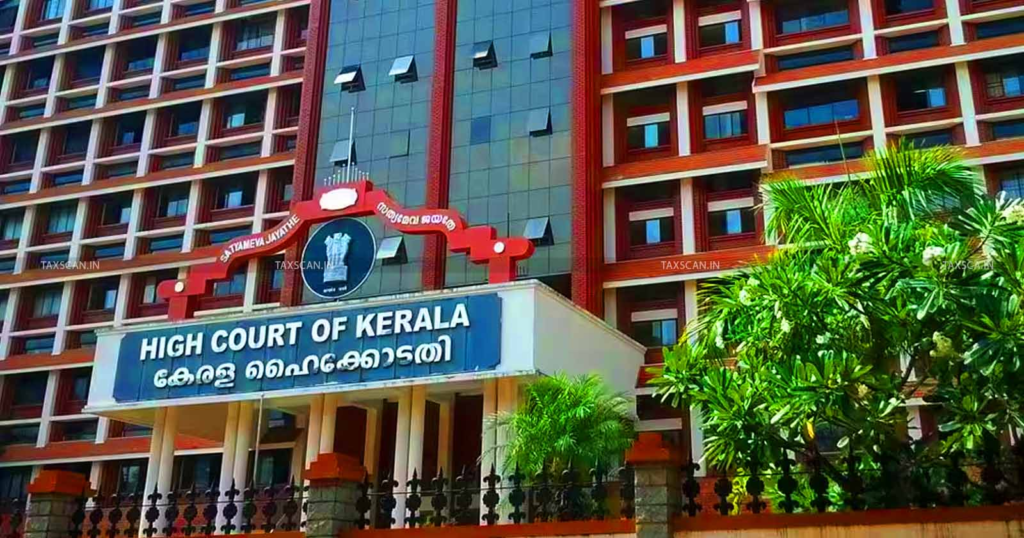On June 3, 2024, the Kerala High Court issued a landmark ruling affirming the fundamental right of an adult woman to choose her spouse, free from custodial restraint imposed by parental control. The case was presided over by Justices Raja Vijayaraghavan V and PM Manoj. The court ordered the release of a 27-year-old woman detained by her father due to his objections to her relationship with a man of a different religious background. It aims to provide a comprehensive understanding of how the judiciary addresses issues of individual rights and personal autonomy in the context of familial and societal constraints. The article also examines the broader implications of this ruling for interfaith relationships and personal freedoms in India.

Significance of the Decision for Individual Rights to choose Spouse
This decision underscores the critical importance of individual autonomy in matrimonial decisions. It highlights the judiciary’s role in protecting personal freedoms against familial and societal pressures. By affirming the woman’s right to make her own marital choices, the court reinforced the constitutional guarantees provided under Articles 19 and 21, emphasizing that parental affection and concern should not override an adult’s right to choose their partner. This ruling serves as a significant precedent in upholding personal liberty and the right to self-determination in matters of marriage and personal relationships.
Case Background for Individual Rights to choose Spouse
Details of the Habeas Corpus Petition: The case began when a habeas corpus petition was filed by the petitioner, a Master’s student residing in Germany. He claimed that his partner, a 27-year-old woman working as a Project Engineer in India, was being unlawfully detained by her father. He is an individual who has been in a committed relationship with the woman at the centre of the case. His academic pursuits abroad have not deterred him from maintaining a strong bond with his partner, demonstrating his dedication and commitment to their relationship.
In the habeas corpus petition, the petitioner claimed that the woman’s father had unlawfully detained her against her will. He argued that the father’s actions were driven by religious objections to their relationship. The petitioner emphasized that the woman’s detention violated her fundamental rights to personal liberty and freedom of choice. He sought the court’s intervention to secure her release from what he described as illegal and unjust confinement, underscoring the importance of respecting her autonomy and decision-making in matters of marriage.
Involved Parties: Petitioner, Woman, and Her Father: The petitioner, a Master’s student from Germany, initiated the legal proceedings. The woman, his partner, was a Project Engineer who expressed her wish to marry the petitioner. The father, the respondent in the case, detained his daughter against her will, citing religious differences and his disapproval of the relationship as his reasons for doing so. The involvement of these three key parties set the stage for a legal battle over personal freedom, parental authority, and individual rights in marriage.
Respondent’s Perspective
Father’s Objections Based on Religious Grounds: The woman’s father strongly objected to her relationship with the petitioner, primarily on the basis of religious differences. He argued that the interfaith nature of their relationship was unacceptable and that his daughter should not marry someone from a different religious background. His objections were rooted in his belief that such a union would lead to cultural and religious discord, potentially affecting the family’s social standing and traditional values.
Arguments Presented by the Father’s Legal Team: The father’s legal team presented arguments emphasizing the father’s concerns and his perceived duty to protect his daughter from making what he considered a misguided choice. They contended that the father’s actions were motivated by genuine parental concern and a desire to ensure his daughter’s well-being. The legal team argued that the father’s custodial restraint was justified on the grounds of protecting family honour and preserving religious integrity. They maintained that the father’s intentions were not malicious but rather aimed at safeguarding his daughter’s future according to their religious and cultural beliefs.
Court Proceedings for Individual Rights to choose Spouse
Virtual Interaction Setup: To thoroughly understand the circumstances and ensure fairness, the Kerala High Court set up a virtual interaction. This setup was designed to facilitate direct communication between the court and the involved parties, despite any geographical or logistical barriers. The virtual platform allowed the court to conduct a comprehensive hearing, ensuring that all voices were heard and considered.
Woman’s Testimony During the Hearing: During the virtual hearing, the woman provided a compelling testimony. She clearly expressed her desire to be with the petitioner and recounted the details of her involuntary confinement by her father. Her testimony highlighted her autonomy and unequivocal wish to make her own decisions regarding her personal life and relationships. She stressed that her detention was against her will and that she wanted to exercise her right to marry the petitioner, underscoring her right to personal freedom and choice.
Role of Video Conference in the Case: The use of video conference technology played a crucial role in this case. It enabled real-time communication and allowed the court to observe the demeanour and sincerity of the involved parties. This technological intervention ensured transparency and immediacy, which were essential for the court to make an informed and just decision. The video conference facilitated an effective and efficient legal process, bridging the gap between physical distances and ensuring that justice was not delayed.
Legal Framework
Reference to Relevant Supreme Court Judgments: The Kerala High Court’s decision draws upon the precedent set by the Supreme Court in cases such as Shafin Jahan v. Asokan K.M. (Hadiya Case) (2018). In these judgments, the Supreme Court affirmed the right of individuals to choose their life partners freely and without interference, emphasizing the principles of personal autonomy and freedom of choice in matters of marriage. These judgments provided the legal foundation for the Kerala High Court’s decision to uphold the woman’s right to marry the partner of her choice, despite parental objections based on religious grounds.
Constitutional Provisions: Articles 19 and 21: The Kerala High Court’s ruling is firmly rooted in constitutional principles, particularly Articles 19 and 21 of the Indian Constitution. Article 19 guarantees the fundamental right to freedom of speech and expression, which encompasses the right to make choices about one’s personal life and relationships. Article 21 ensures the right to life and personal liberty, protecting individuals from arbitrary restraint and affirming their autonomy in decision-making. By invoking these constitutional provisions, the Kerala High Court underscored the importance of safeguarding individual rights and liberties, ensuring that they are upheld even in the face of familial objections and societal pressures.
Judicial Reasoning
- Court’s Interpretation of Individual Autonomy: The Kerala High Court’s decision reflects a strong interpretation of individual autonomy, particularly in matters of personal relationships and marriage. The court emphasized that every adult individual has the inherent right to make choices that affect their personal life, including decisions about marriage and partnerships. By upholding the woman’s right to choose her spouse, the court reaffirmed the principle that personal autonomy is a cornerstone of individual dignity and liberty. This interpretation underscores the judiciary’s role in protecting and promoting personal freedoms against undue interference, whether from familial or societal sources.
- Balancing Parental Concern with Personal Freedom: In deciding this case, the Kerala High Court carefully balanced parental concerns with the fundamental rights of the individual. While acknowledging the father’s legitimate concerns and affection for his daughter, the court emphasized that parental authority cannot override an adult’s right to self-determination. The court recognized the delicate balance between parental guidance and individual autonomy, asserting that while parental advice and guidance are valuable, they cannot be coercive or restrictive to the extent of violating fundamental rights. This approach ensures that personal freedoms are respected and protected, even in situations where they may conflict with familial expectations or cultural norms.
Key Legal Precedents: Detailed Look at the Shafin Jahan v. Asokan KM (Hadiya Case)
Background: Hadiya, previously known as Akhila Ashokan, converted to Islam and married Shafin Jahan in 2016.
Father’s Objection: Asokan KM, Hadiya’s father, filed a habeas corpus petition alleging that she was forcibly converted and married.
Kerala High Court’s Verdict: Initially annulled the marriage, citing coercion and influence in 2017.
Supreme Court Intervention: Overturned the Kerala High Court’s decision, affirmed Hadiya’s right to choose her faith and spouse freely in 2018.
Judgment Rationale: Emphasized adult individuals’ autonomy in choosing their religion and life partner.
Precedential Value: Established legal precedent for personal autonomy and freedom of choice in marital and religious matters.
Impact: Influenced subsequent cases involving personal freedoms and religious conversions in India’s courts.
Public Debate: Sparked national discourse on individual rights, parental authority, and religious conversion laws.
Constitutional Principles: Upheld Articles 21 (right to life and personal liberty) and 25 (freedom of conscience and free profession, practice, and propagation of religion) of the Indian Constitution.
Controversy and Support: Received widespread attention from civil society, legal experts, and religious communities regarding the balance between personal liberties and societal norms.
- Impact of Previous Judgments on This Case: The Kerala High Court’s decision in the present case draws significant inspiration from the principles laid down in the Hadiya case and other relevant Supreme Court judgments. These judgments have collectively reinforced the importance of respecting individual autonomy and personal freedom in matters of marriage and relationships. The courts have consistently upheld the rights of adults to make decisions about their personal lives without undue interference, ensuring that constitutional guarantees of liberty and equality are upheld across diverse cultural and religious contexts. The impact of these precedents on the present case underscores the judiciary’s commitment to protecting fundamental rights and promoting a society where personal freedoms are safeguarded against arbitrary constraints.
Court’s Decision to choose Spouse
Summary of the Judgement: In a landmark decision, the Kerala High Court upheld the fundamental right of an adult woman to choose her spouse freely, despite objections from her father based on religious grounds. The court emphasized the woman’s autonomy and rejected any attempts to restrict her personal liberty unlawfully. Citing constitutional guarantees of freedom of choice and personal liberty, the court ruled in favour of the petitioner, allowing her to emancipate herself from custodial restraint and unite with her chosen partner.
Immediate Actions Ordered by the Court: The Kerala High Court ordered the immediate release of the woman from her father’s custody, affirming her right to live and make decisions independently as an adult. The court’s directive aimed to ensure that the petitioner could exercise her constitutional rights without further interference or delay, marking a significant step towards protecting individual freedoms in marital choices within the legal framework of India.
Impact on Interfaith Relationships to choose Spouse
Implications for Future Interfaith Couples: The Kerala High Court’s decision sets a significant precedent for interfaith couples in India, reaffirming their right to freely choose their partners without undue interference from familial or societal pressures. By upholding the woman’s autonomy in marrying a person from a different religious background, the court sends a strong message about the importance of respecting individual choices and personal freedoms in relationships. This ruling provides hope and legal backing for future interfaith couples facing similar challenges, encouraging them to assert their rights and seek legal recourse against unlawful constraints.
Legal Protections Reinforced by the Ruling: The ruling reinforces several legal protections guaranteed under the Indian Constitution, including the rights to freedom of conscience and personal liberty. Article 25 ensures every individual’s right to profess, practice, and propagate their religion freely, while Article 21 safeguards the right to life and personal liberty. By upholding these constitutional provisions, the Kerala High Court affirms its commitment to protecting the fundamental rights of citizens, particularly in matters as intimate and personal as marriage. This reinforces the legal framework that safeguards individual autonomy and ensures that personal choices are respected and protected under the law.
Comparative Analysis
Similar Cases in Other Jurisdictions: Across various jurisdictions globally, cases involving disputes over marital choice and personal autonomy share similarities with the Kerala High Court’s recent decision. For instance, in countries like the United States, Canada, and several European nations, courts have addressed issues of parental consent versus individual autonomy in marital decisions. These cases often hinge on balancing familial concerns with the rights of adults to choose their partners freely, irrespective of cultural or religious differences. Comparative analysis reveals that while legal frameworks may differ, the underlying principles of protecting personal liberties and upholding constitutional rights remain consistent across diverse legal systems.
Differences in Judicial Approaches: Jurisdictions differ significantly in their judicial approaches to cases involving personal autonomy in marital decisions. For example, some countries like India Pakistan, Bangladesh and Afghanistan emphasize parental authority and societal norms in guiding marital choices, while others prioritize individual rights and freedoms guaranteed by national constitutions. Contrasts in judicial approaches reflect varying cultural contexts, legal traditions, and societal values regarding family dynamics and personal autonomy. Comparative analysis underscores the evolving nature of legal interpretations concerning personal liberties and the complex interplay between familial obligations and individual rights in different parts of the world.
Relevant Cases from Indian Courts on Personal Autonomy and Marital Choice
- Lata Singh v. State of U.P. & Another (2006): In this case, the Supreme Court of India emphasized the right of adult individuals to marry a person of their choice, irrespective of caste or religion. The court ruled against honour killings and upheld the autonomy of individuals in matters of marriage.
- Shakti Vahini v. Union of India & Others (2018): The Supreme Court addressed the issue of khap panchayats and their role in honour killings, emphasizing the need to curb illegal activities carried out in the name of family honour and upholding the rights of individuals to choose their life partners freely.
- Nandakumar & Anr. v. State of Kerala & Ors. (2018): In this case, the Kerala High Court reaffirmed the rights of adults to live together even if they are in a live-in relationship, emphasizing personal autonomy and the right to privacy.
These cases illustrate the evolving jurisprudence in India regarding personal autonomy, freedom of choice in relationships, and the protection of individual rights against societal and familial pressures. Each case reflects the judiciary’s commitment to upholding constitutional principles and ensuring justice in matters of personal liberty and marital decisions.
Final Thoughts on the Impact on Individual Rights and Societal Norms
The Kerala High Court’s decision marks a significant milestone in affirming individual rights over societal norms in matters of personal autonomy and marital choice. By prioritizing the freedom of adults to make independent decisions about their lives and relationships, the ruling not only strengthens constitutional protections but also challenges deep-rooted societal norms that may inhibit personal liberty. This landmark judgment sets a precedent for future cases, signaling a broader shift towards recognizing and respecting individual rights in India’s evolving legal judgements.




